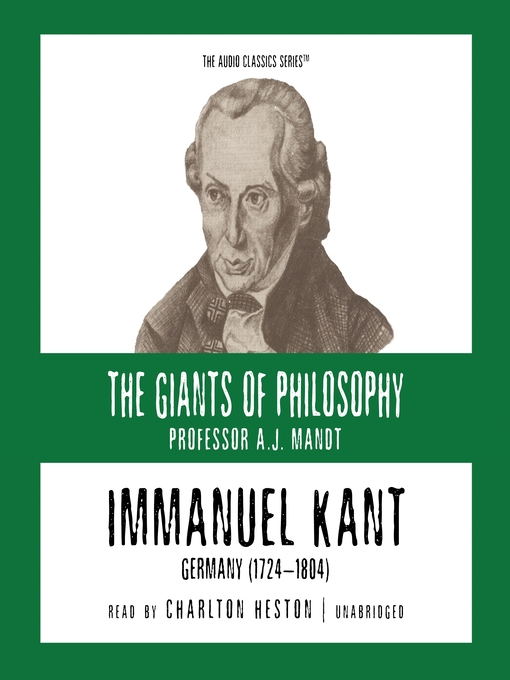Immanuel Kant's "transcendental" philosophy transcends the question of what we know to ask how we know it. Before Kant, philosophers had debated for centuries whether knowledge is derived from experience or reason. Kant says that both views are partly right and partly wrong, that they share the same error; both believe that the mind and the world, reason and nature, are separated from one another. Kant says that our reason organizes our sense perception to produce knowledge. The mind is a creative force for understanding the manifold of new, unconceptualized sense impressions with which the world bombards us.
- Toes In The Sand & A Book In Hand
- New York Times Notable Books of 2024
- NPR's Books We Love 2024
- Time Must-Read Books of 2024
- 2024 Carnegie Medal Award Nominees
- 2024 Hugo and Nebula Award Nominees
- Gentle Reads
- Reese's Book Club Picks
- Oprah's Book Club
- Try something different
- Available now
- New eBook additions
- New kids additions
- See all ebooks collections
- 2025 Audie Award Nominees
- Gentle Reads - Audiobooks
- Read by the Author
- Learn a New Language
- Try something different
- Available now
- New audiobook additions
- New kids additions
- New teen additions
- Most popular
- See all audiobooks collections
- Favorite Magazines
- Just Added
- Food & Cooking
- Cars & Motorcycle
- Revistas
- Crafting
- News & Politics
- See all magazines collections
